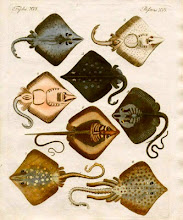THE HOURGLASS
It is well that time can be measured
With the harsh shadow a column in summer
Casts, or the water of that river
In which Heraclitus saw our folly,
Since both to time and destiny
The two seem alike: the unweighable daytime
Shadow, and the irrevocable course
Of water following its own path.
It is well, but time in the desert
Found another substance, smooth and heavy,
That seems to have been imagined
For measuring dead men’s time.
Hence the allegorical instrument
Of the dictionary illustrations,
The thing that grey antiquaries
Will consign to the red-ash world
Of the odd chess-bishop, of the sword
Defenceless, of the telescope bleared,
Of sandalwood eroded by opium,
Of dust, of hazard, of the nada.
Who has not paused before the severe
And sullen instrument accompanying
The scythe in the god’s right hand
Whose outlines Dürer etched?
Through the open apex the inverted cone
Let the minute sand fall down,
Gradual gold that loosens itself and fills
The concave crystal of its universe.
There is pleasure in watching the recondite
Sand that slides away and slopes
And, at the falling-point, piles up
With an urgency wholly human.
The sand of the cycles is the same,
And infinite, the history of sand;
Thus, deep beneath your joys and pain,
Unwoundable eternity is still the abyss.
Never is there a halt in the fall.
It is I lose blood, not the glass. The ceremony
Of drawing off the sand goes on forever
And with the sand our life is leaving us.
In the minutes of the sand I believe
I feel the cosmic time: the history
That memory locks up in its mirrors
Or that magic Lethe has dissolved.
The pillar of smoke and the pillar of fire,
Carthage and Rome and their crushing war,
Simon Magus, the seven feet of earth
That the Saxon proffered the Norway king,
The tireless subtle thread of unnumbered
Sand degrades all down to loss.
I cannot save myself, a come-by-chance
Of time, being mattered that is crumbling.
Subscribe to:
Post Comments (Atom)




No comments:
Post a Comment